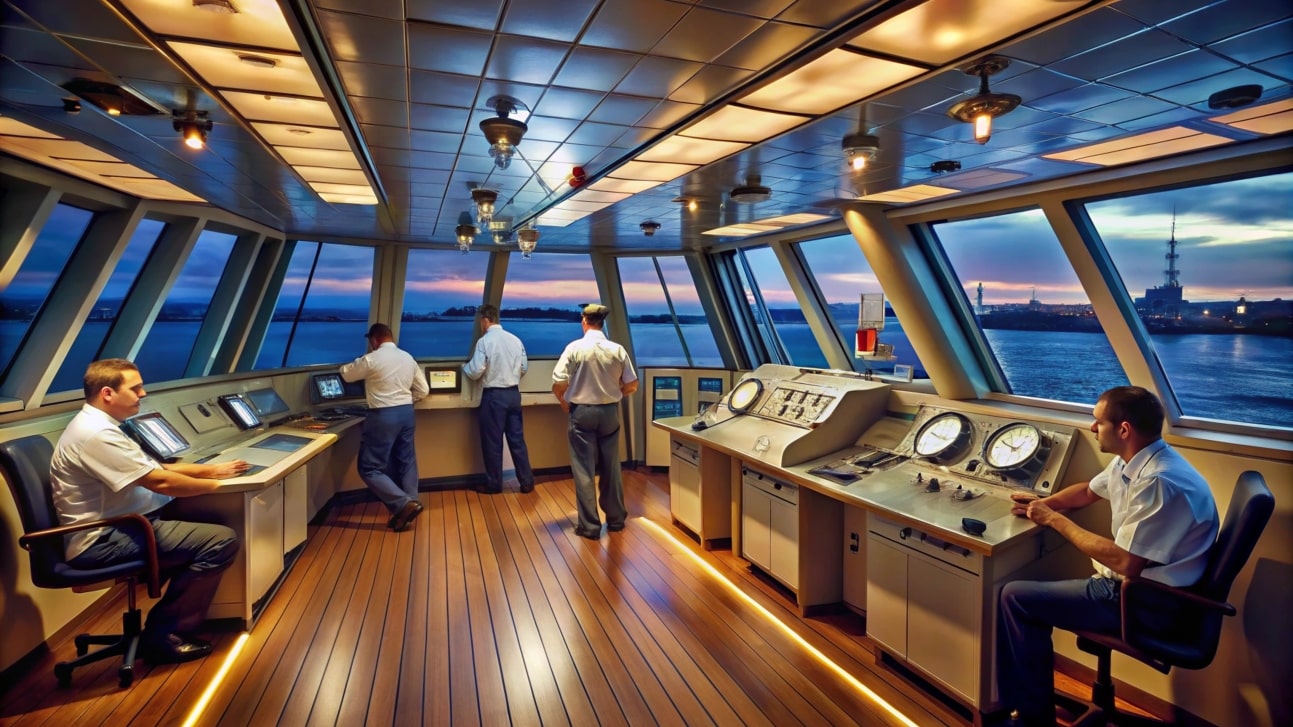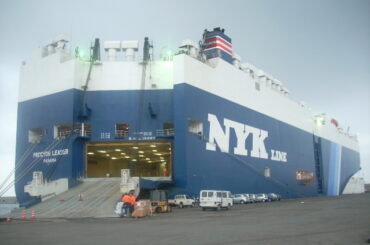Steering through the intricate web of work hours and rest hours regulations on ships is a crucial aspect of maintaining a safe and efficient maritime operation. The balance between maximizing productivity and ensuring the well-being of seafarers is a delicate one, governed by stringent international standards like the Maritime Labor Convention. Understanding the nuances of watchkeeping, shift scheduling, and fatigue management can make all the difference in crew performance and safety at sea. Stay tuned to uncover practical strategies and essential insights that are fundamental for promoting a harmonious work environment onboard vessels.
Key Takeaways
- MLC sets guidelines for maximum working hours and rest periods.
- Adequate rest is crucial for seafarers’ health and performance.
- Effective watchkeeping prevents fatigue and maintains alertness.
- Overtime rules ensure fair compensation for extra work.
- Stress management programs enhance crew well-being and performance.
International Regulations and Standards
When it comes to work hours and rest hours on ships, adherence to international regulations and standards is paramount. The maritime industry is governed by a set of regulatory frameworks that aim to guarantee the well-being and safety of seafarers.
These regulations, such as the Maritime Labor Convention (MLC) established by the International Labour Organization (ILO), set out specific guidelines regarding working hours, rest periods, and overall conditions of employment for seafarers worldwide.
The MLC, often referred to as the “Seafarers’ Bill of Rights,” addresses a wide range of issues related to maritime labor, including minimum age, recruitment and placement, accommodation, food and catering, medical care, and yes, the crucial aspect of work and rest hours.
By establishing these international standards, the MLC aims to promote fair employment practices, protect seafarers’ rights, and guarantee a level playing field for shipowners and operators across different countries.
Compliance with these international regulations is not only a legal requirement but also a moral obligation to safeguard the welfare of seafarers who play an essential role in global trade and commerce.
Maximum Working Hours for Seafarers
Adherence to maximum working hours for seafarers is a vital aspect of ensuring their safety and well-being while onboard ships.
Fatigue management plays a pivotal role in maintaining a safe working environment at sea. International regulations such as the Maritime Labour Convention (MLC) set out specific guidelines regarding maximum working hours for seafarers to prevent exhaustion and promote crew welfare.
These regulations typically limit the maximum working hours to 14 hours per day and 72 hours per week, with additional restrictions during emergencies or exceptional circumstances.
It is essential for ship operators to monitor and enforce these limits rigorously to prevent fatigue-related incidents that could jeopardize the safety of the crew and the vessel.
Effective fatigue management not only enhances safety but also contributes to the overall well-being and job satisfaction of seafarers.
Minimum Rest Periods and Breaks
Ensuring adequate minimum rest periods and breaks for seafarers is imperative to safeguard their health and performance onboard ships. Fatigue management is a critical aspect of maritime safety, and proper rest periods play a significant role in preventing fatigue-related incidents.
Seafarers require sufficient time to rest and recover from their duties to maintain ideal cognitive function and physical well-being. Regulatory bodies, such as the International Maritime Organization (IMO), have established guidelines to address minimum rest periods to promote sleep quality and overall wellness among seafarers.
Breaks during shifts are essential to allow seafarers to recharge and refocus, contributing to enhanced job performance and safety outcomes. Adequate rest periods also help mitigate the risks associated with sleep deprivation, which can impair decision-making abilities and reaction times.
Watchkeeping and Shift Scheduling
Seafaring operations rely heavily on effective watchkeeping and shift scheduling to maintain operational efficiency and safety standards. Watchkeeping practices on ships involve assigning designated personnel to specific time slots to guarantee continuous monitoring of the vessel, navigation, and machinery.
It is essential to follow established watch schedules to prevent fatigue and maintain a high level of alertness among crew members. Regular audits assess effectiveness and adherence to standards, confirming that energy efficiency management plans (Energy Efficiency Management Plan (SEEMP)) are being properly implemented.
Shift scheduling plays an important role in optimizing the performance of maritime operations. Efficient shift arrangements must consider factors such as workload distribution, rest periods, and the circadian rhythm of the crew.
Properly structured shifts help prevent burnout and errors, ultimately enhancing the overall safety and productivity of the crew. By implementing well-designed watchkeeping practices and shift schedules, maritime companies can promote a culture of safety, mitigate operational risks, and uphold regulatory compliance.
Overtime Rules and Compensation
To guarantee fair labor practices and maintain compliance with international regulations, maritime companies must establish clear guidelines regarding overtime rules and compensation for seafaring personnel.
Compensation structures for overtime work on ships typically involve a base salary along with additional pay for hours worked beyond regular shifts. Overtime calculations are often based on a standard hourly rate, which could be 1.5 or 2 times the regular wage, depending on the specific employment contract and applicable laws.
Implementing these compensation structures, as outlined in the Hague-Visby Rules, guarantees that seafaring personnel are adequately compensated for their extra work hours. Failure to adhere to these guidelines could lead to legal consequences and damage the company’s reputation.
By implementing transparent policies and accurate overtime calculations, companies can promote fairness and motivate employees to perform their duties efficiently.
Monitoring compliance with these rules is essential to avoid disputes and maintain a harmonious work environment onboard ships.
Monitoring and Compliance Measures
The enforcement of monitoring and compliance measures within the maritime industry is paramount to upholding operational standards and guaranteeing adherence to established regulations.
Fatigue management is a critical aspect of these measures, as fatigue among crew members can lead to impaired decision-making and increased risk of accidents. Monitoring work hours, rest periods, and overall workload is essential to prevent fatigue-related issues.
Safety culture plays a significant role in promoting compliance with regulations. A strong safety culture fosters a work environment where adherence to rules and procedures is prioritized, leading to a safer and more efficient operation.
To guarantee compliance with regulations, maritime companies often implement electronic monitoring systems to track work hours, rest periods, and overall fatigue levels. These systems provide valuable data that can help identify potential non-compliance issues and allow for timely interventions.
Regular audits and inspections are also conducted to verify compliance and address any gaps in adherence to regulations. By prioritizing monitoring and compliance measures, maritime companies can create a safer and more sustainable working environment for their crew members.
Strategies for Promoting Well-being at Sea
In light of the challenging maritime work environment, the implementation of effective strategies for promoting well-being at sea is essential to safeguarding the physical and mental health of crew members.
Mindfulness practices play a significant role in enhancing crew well-being by fostering self-awareness, reducing stress, and improving overall mental resilience. The historical evolution of passenger ships demonstrates a shift towards prioritizing passenger comfort and safety(What Are Passenger Ships?).
Encouraging crew members to engage in mindfulness techniques such as meditation and deep breathing exercises can aid in managing stress levels and promoting a sense of calm amidst the demanding maritime environment.
Additionally, stress management programs tailored to the unique challenges faced at sea can provide crew members with the necessary tools and resources to cope with high-pressure situations effectively.
These programs may include stress awareness training, counseling services, and workshops on stress reduction techniques.
Frequently Asked Questions
How Do Work Hours Vary for Seafarers on Different Types of Ships?
Work hour regulations for seafarers vary based on ship types. Different vessels, such as cargo ships, tankers, and cruise liners, adhere to specific guidelines governing work hours to guarantee safety, efficiency, and compliance with international maritime labor standards.
Are There Specific Rules for Work Hours During Emergencies or Drills?
During emergencies or drills aboard ships, specific rules govern work hours to guarantee safety and efficiency. Emergency protocols dictate response times and duties, while drill procedures simulate real-life scenarios to prepare crew members for quick and effective actions.
Can Seafarers Request Adjustments to Their Work Schedules?
Seafarers can request adjustments to their work schedules to enhance work-life balance and provide schedule flexibility. Such requests would need to comply with maritime regulations and may require approval from relevant authorities or management personnel.
What Are the Guidelines for Managing Work Hours in Extreme Weather Conditions?
In extreme weather conditions, adherence to weather protocols is vital for seafarers’ safety. Regulatory guidelines emphasize fatigue management to guarantee alertness during critical operations. Proper planning and communication are essential to mitigate risks and protect crew members.
How Do Work Hours Differ for Seafarers on Short-Term Contracts Versus Long-Term Contracts?
Seafarers on short-term contracts may face more rigid work hour regulations compared to those on long-term contracts, impacting their contract flexibility and workload balance. Understanding these differences is essential for ensuring regulatory compliance and crew well-being.





